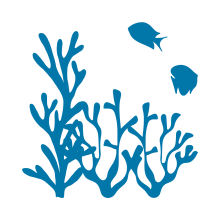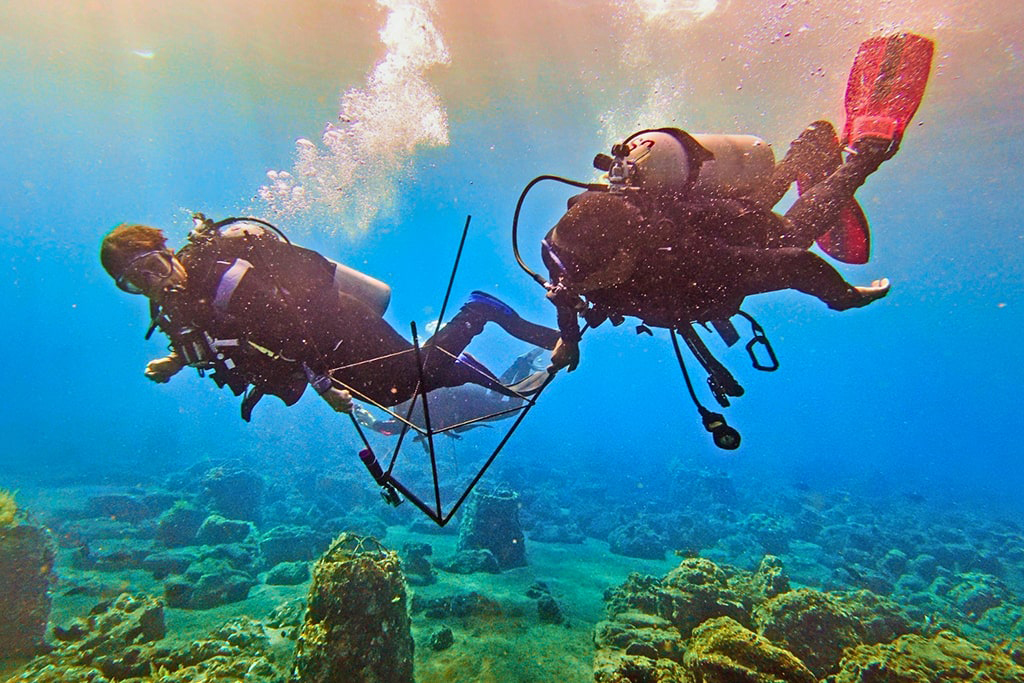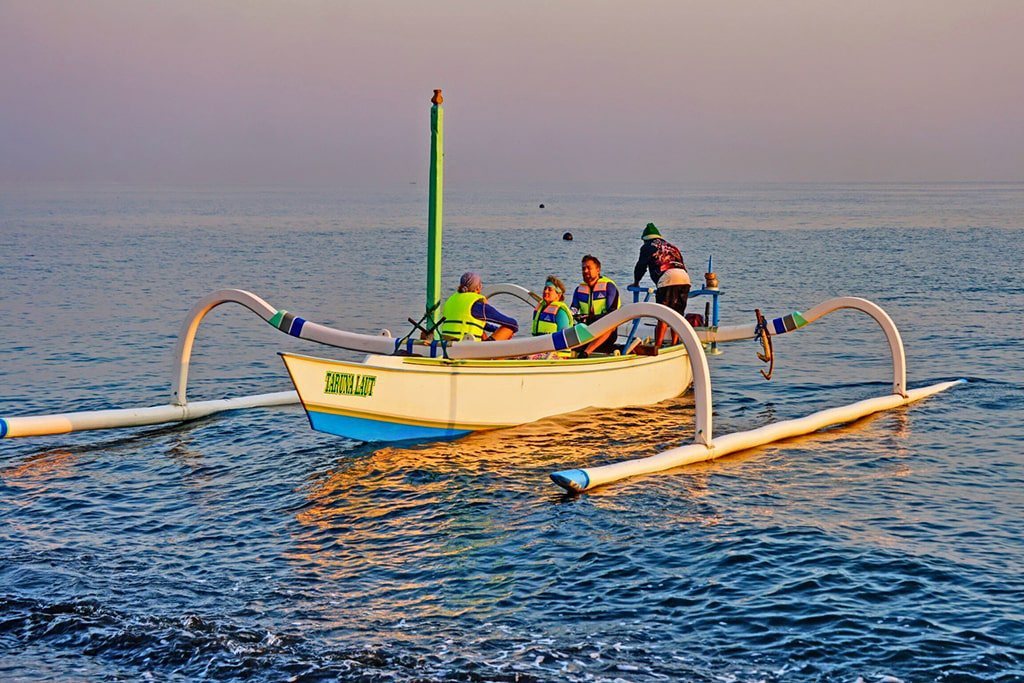How Scuba Skills Can Restore Oceans
How can scuba divers become better allies to our oceans?
By Coralys Negretti
For many, scuba diving is the ultimate adventure—a journey into an underwater world teeming with vibrant life. Yet precious marine habitats are increasingly jeopardized by the very people drawn to their beauty. Pollution, overfishing, and warming temperatures are just some of the challenges our oceans face today.
It's ironic that scuba divers, who have a firsthand view of the splendor of marine life, may unknowingly harm the very ecosystems we admire. This realization underscores the need for divers to shift from mere spectators into active ocean defenders. By leveraging our unique skills, scuba divers have the potential to play a significant role in marine conservation.
The Role of Scuba Divers in Ocean Conservation
Coral reefs face numerous threats. According to the 2022 IPCC report, warmer and more acidic waters will devastate coral reefs around the world. Coral reefs are important for maintaining biodiversity in our oceans and for their benefits to humans. Reefs provide local communities with food, storm protection, and revenue through tourism.
The scuba diving community is uniquely positioned to make a massive impact on protecting marine biodiversity. As scuba divers, we can witness firsthand the changes marine ecosystems undergo. While divers can have a negative effect through negligent diving practices, we can also adopt more eco-conscious behaviors to protect the environments we are fond of.
Five Sustainable Scuba Diving Practices

Gear up responsibly: Keep in mind the impact of gear choices on the environment. Research the production process and material of wetsuits, fins, equipment, and even sunscreen.

Mind your buoyancy: Controlling your buoyancy is more than just a technical skill—it's our commitment to protecting marine habitats. Proper buoyancy allows us to avoid contact with the coral reefs and fragile habitats that marine creatures call home.

Leave only bubbles behind: Beyond maintaining a respectful distance from marine life, divers should be mindful not to touch, disturb, or litter underwater habitats.

Capture memories, not marine life: Marine life is not a souvenir! Removing wildlife affects the balance of underwater ecosystems. Instead, help protect this environment by taking trash with you.

Use your scuba skills for good: There are many ways to join the global community of scuba divers committed to protecting our planet. Research local underwater beach cleanups, volunteer scuba opportunities, or international conservation projects.
More and more divers are now becoming aware of the threats that the industry puts on the marine environment and are choosing to actively participate in marine conservation.
— Zach Boakes, Earthwatch Scientist and Co-Founder of North Bali Reef Conservation
Scuba diving for ocean restoration
In addition to individual actions, the scuba diving community has taken significant steps to deepen its role in ocean conservation. Through volunteering and participating in citizen science projects, divers can turn their underwater adventures into meaningful conservation work.
All over the world, thousands of scuba divers volunteer to work in coral transplantation, reef monitoring, artificial reef deployments, and more. Earthwatch's Restoring Coral Reefs in Bali expedition is a shining example of divers making a difference.
Since 1971, Earthwatch has been connecting people with science and conservation through flagship expeditions. Earthwatch scuba expeditions are one way travelers can contribute to research and conservation efforts.

Scuba divers participating in the Restoring Coral Reefs in Bali expedition help scientists conduct surveys and deploy remote underwater video (RUV) units to record and monitor wildlife on reefs. (Photograph by John McCarty)
Restoring Coral Reefs in Bali takes place amidst the Coral Triangle, an area hailed as the "global center of marine biodiversity." Expedition participants stay in the village of Kubu in northern Bali, home to a large community of fishers who rely on healthy coral reefs to provide habitat for a variety of fish species.
Previously, these reefs were exploited due to unsustainable fishing practices that degraded the coral and decreased fish populations. Today, the reefs are part of a locally established Marine Protected Area. There, Earthwatch participants join scientists to support local coral reef restoration efforts.
Participants in the Restoring Coral Reefs in Bali expedition become immersed in a comprehensive restoration effort. Scuba divers swim over artificial and natural reefs, deploy remote underwater video units, and help analyze data. Divers also gain hands-on experience with marine life species identification and survey techniques.
Data collected by volunteer scuba divers supports research by scientists Rick Stafford, Ph.D., and Zach Boakes. Their study seeks to determine how well artificial reef structures can mimic natural coral communities. Thus far, their work offers hope for marine ecosystems affected by climate change.
Restoring coral reefs in Bali
For scuba divers, the ocean is a second home. Yet, according to Zach Boakes, one of the scientists leading the Earthwatch expedition, the very act of diving often leaves these sensitive ecosystems worse off. Touching organisms, colliding with corals, and stirring up sediment are some ways divers can inadvertently harm the marine environments we cherish. This realization underscores the importance of sustainable diving practices.
"A large percentage of scuba divers enjoy being underwater because they feel immersed in the beauty of the marine environment. Despite this, only a small percentage contributes to its conservation," Zach explains. "It's not all doom and gloom ... More and more divers are now becoming aware of the threats that the industry puts on the marine environment and are choosing to actively participate in marine conservation."
Zach emphasizes the unique contributions that scuba divers bring to coral reef restoration. "Scuba diving represents a fantastic opportunity for divers to contribute to the conservation of the marine environment. Much coral reef restoration work requires spending a lot of time underwater. Most of the time, this work is conducted by scuba divers because of the intensity of the activities and the amount of time required to undertake these tasks."

Participants spend a week scuba diving the shores along the Tianyar village in Kubu, North Bali, to support coral reef restoration activities. (Photograph by John McCarty)
For Putri Mulyani Nurdin, a staff Dive Master assisting the expedition, the motivation to protect the oceans runs deep. Inspired by her late grandfather and father, both avid divers, she feels a profound connection to the sea. "When I'm in the ocean or diving, I feel close and connected with them," she shares. Her journey into scuba diving and marine conservation is a personal passion and a legacy she carries forward.
Working on the Restoring Coral Reefs in Bali expedition has allowed Putri to meet and inspire participants from around the globe. Her favorite part of this expedition? "Meeting people from all over the world who are passionate about diving and protecting coral reefs." Putri's work not only helps to restore Bali's coral reefs but also educates and encourages others to dive responsibly.
As the threats to our oceans grow, so does the need for dedicated individuals willing to dive deep for change. Scuba divers, with their skills and deep passion for the marine environment, are uniquely suited to answer the call.
Sign up for the Earthwatch Newsletter
Be the first to know about new expeditions, stories from the field, and exciting Earthwatch news.
.
.
.